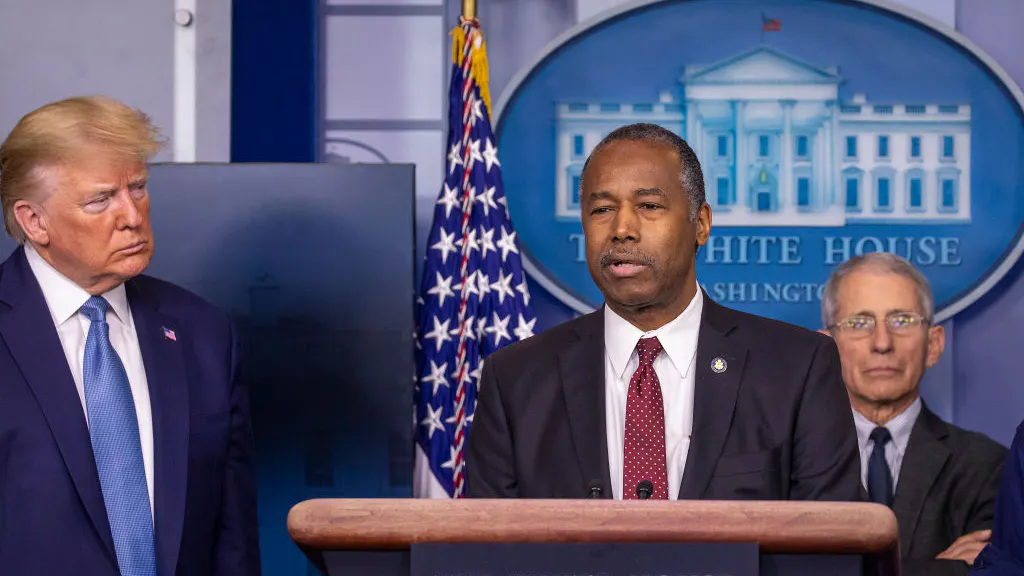Speaking to Sandra Smith of Fox News, Secretary of Housing and Urban Development Dr. Ben Carson exuded confidence that the economy would return to health, asserting that the U.S. shouldn’t wait “until every vestige of the virus is gone” to reopen the economy. He also surmised about the millions of jobs that have been lost due to the effects of the coronavirus, “They won’t come back immediately, but they will spring back a lot faster than one might imagine.”
Smith asked, “Mr. Secretary, if you could, just give us your idea and how are you advising the president on the best way to open the economy safely?”
Carson responded by noting the state of the economy before the coronavirus crisis occurred:
Well, what we have to recognize is that we have going into this an incredibly strong economy. And things were going very well. The fundamentals, the underlying structure of our economy is very solid and very strong. So what we want to do is we want to maintain that economy, bridge the gap, and that means that you are going to have to infuse some significant federal funds. But we want to keep things going so that once the virus problem has been eliminated, we can go back. And it doesn’t mean that we have to wait until every vestige of the virus is gone. You know, common sense would dictate that if we wait until everything is gone our economy will be gone, also.
So we have to recognize that obviously, you know, there are risks, benefits and risks in everything and we have to weigh those things. That’s what a task force does. We look at all the different variables; we look at medical variables; we look at social variables, economic variables; and we try to give the president the kind of advice that would be beneficial in maintaining people’s health but also in maintaining their lifestyle.
Smith spoke of the millions of jobs that have been lost since the coronavirus crisis began in the United States, then asked if Carson thought the jobs lost would take a long time to return. He answered with confidence:
They won’t come back immediately, but they will spring back a lot faster than one might imagine. You know, the last time we had a severe economic downturn back in 2008, that was on the back of a very weak economy. This is on the back of a very strong economy and it wasn’t caused by economic factors it was caused by a virus which will go away. This too will pass.
So what we’re talking about here is just maintaining the strong financial infrastructure and economic infrastructure that already exists. And we can do that. It doesn’t matter if it’s five million or ten million or 15 million; we’re going to gradually them all back to work but we have to do it intelligently. We’ve learned things about this virus; we’ve learned things about its transmission; we will incorporate those things into the action plan for getting back to work.

.png)
.png)

